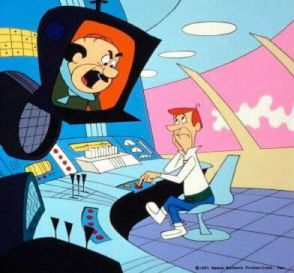
Knobs beat them all!
Posted on 10/10/2014 12:14:30 AM PDT by Windflier
This original and fascinating book sets out to discover which of the ten centuries from 1000 to 2000 saw the most change in the human condition.
Surely, most of us would say, it can only be the 20th century? Flying, mass motoring, space travel, advanced weapons, atomic power, telephones, radio and television, computers and iPads — what more change do you want?
Ah, says the historian Ian Mortimer, history is not just a matter of inventions. More important are changes in the conditions under which we live and, above all, in the ideas that are ruling at any one time.
Many crucial inventions are ones we take for granted. People can get by without laptops but not without buttons, introduced in the 1330s, which transformed the way people looked, from loose hanging garments to tight-fitting ones.
Think of how life indoors was transformed in the 1500s with the coming of efficient chimneys to take the smoke out and glass windows to let the light in (but not the cold). Or the coming of gas light in the streets in the 1820s and soon afterwards in the home with the boon of a gas cooker instead of the coal-fired range from 1834.
Electric light bulbs (1870) led to all kind of electrically powered appliances — kettles, toasters, fans and sewing machines by the end of the 19th century. And the Great Exhibition of 1851 unveiled the flushing lavatory which soon led to dedicated bathrooms for the well-to-do.
Columbus discovered the New World in 1492 but America’s existence made little difference to life for the average European except for the novelty of potatoes, tomatoes and tobacco.
Tea, coffee and chocolate did not appear till the 17th century, along with Dutch gin, French brandy, champagne and humble lemonade.
(Excerpt) Read more at dailymail.co.uk ...
***** :O) ****
I am someone who thinks GPS gizmos in cars are a step backwards. When women see men get lost and try to figure out where they are, they go all feminist that our egos can't allow us to ask for help. But I see it entirely differently.
Getting lost when driving is something unexpected. It suddenly goes from a boring drive from point a to point b, to an adventure. It is now a puzzle, and the adventure part of our brains kicks in and wants to figure out the puzzle. We don't get many opportunities anymore to discover lost islands or new continents, or kill a grizzly bear with our bare hands. But every once in a while, we can get an adventure dropped into our lap where we are lost and have to get back. And then women want to immediately ruin it by asking directions.

That's called survivor bias. Being 100, she qualifies. Long may she live!
I am just of the opinion that modern medicine has advanced since 1945 more than any other field.
Actually, since 1945, progress in electronics and information science has far exceeded progress in other fields, including medicine.
Think about it: Living to 100 is still an achievement. Air travel is still subsonic. Flying cars are still mostly science fiction. Electricity isn't yet too cheap to meter. Stuff like Ebola is still scary.
Then there's the Apple Watch ...
Our children will enjoy in their homes electrical energy too cheap to meter... It is not too much to expect that our children will know of great periodic regional famines in the world only as matters of history, will travel effortlessly over the seas and under them and through the air with a minimum of danger and at great speeds, and will experience a lifespan far longer than ours, as disease yields and man comes to understand what causes him to age.
http://www.thisdayinquotes.com/2009/09/too-cheap-to-meter-nuclear-quote-debate.html
Atoms for Peace!
Not washing your hands after going to the washroom because of lack of plumbing led to typhoid and cholera.

Typical Daily Mail BS. The the other day they had a ridiculous article about a “newly discovered” 100 year old ghost town in Tennessee (complete with stainless steel door knobs and sky lift):
THE MICROWAVE!
Tell the Amish about that. They get along just fine without buttons.
Just ask George Jetson. All he did all day was push buttons for Mr. Spacely at Spacely Sprockets.

Nice post.
In conducting genealogical research I came across a relative that was born in 1866 and died in 1954, the same time period you wrote about. He was a farmer that lived in Missouri his whole life.
At birth, his county was the definition of rural, having only been settled by pioneers a couple of decades prior. In his teenage years, they finally got a branch of the railroad to run through the nearest town which brought ‘luxuries’ to them. Before that, covered wagon transports made the 100 mile journey to the nearest rail station. They still owned a horse and buggy into the early 1930’s when they finally got an old car.
While his own day to day living as a farmer may not have changed that much, with the exception of farming technology, to think he was born just after the Civil War and died just before the space age is remarkable.
bump for later
Kids are addicted to their electronic toys... they are clueless about how culture evolved and hangs together.
Elastic.
Disclaimer: Opinions posted on Free Republic are those of the individual posters and do not necessarily represent the opinion of Free Republic or its management. All materials posted herein are protected by copyright law and the exemption for fair use of copyrighted works.